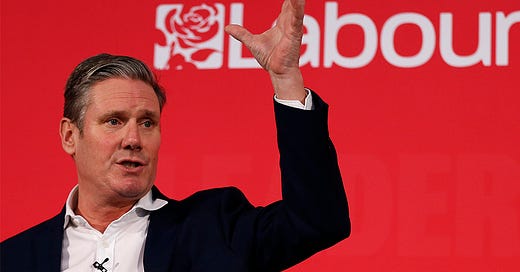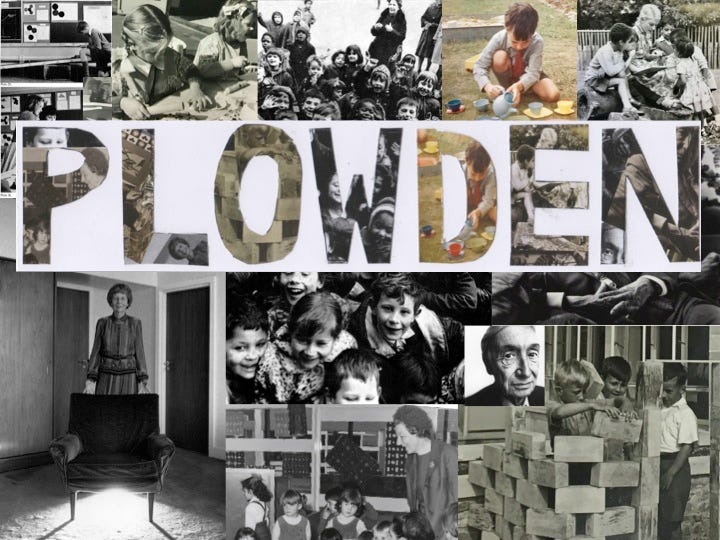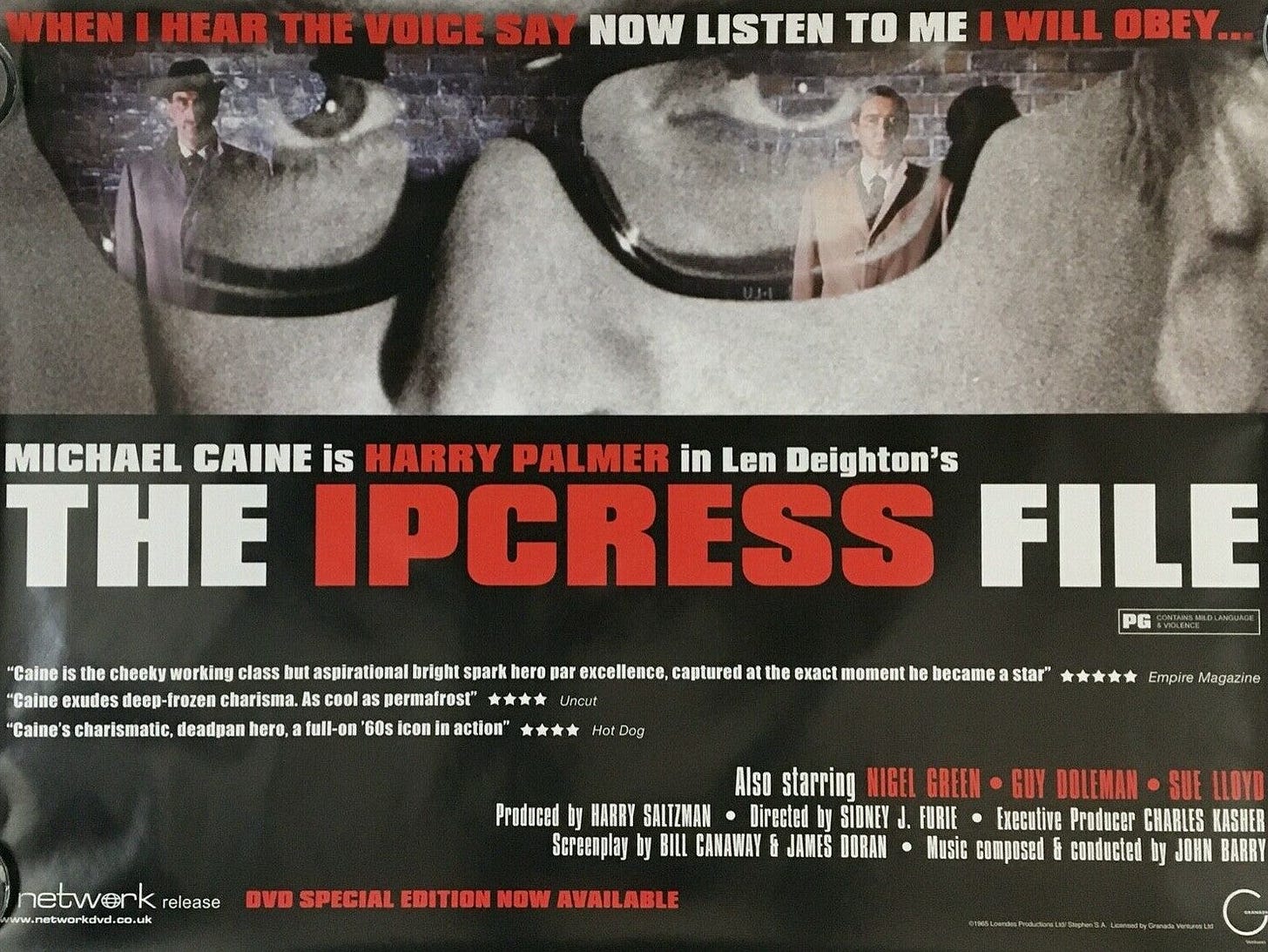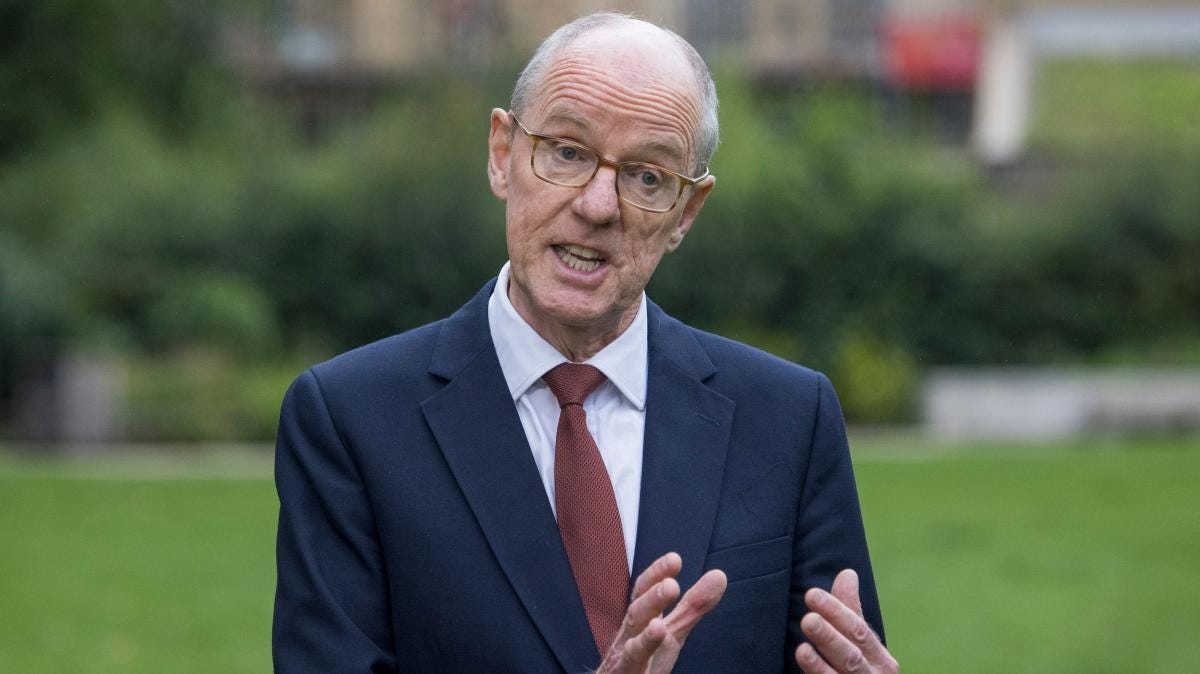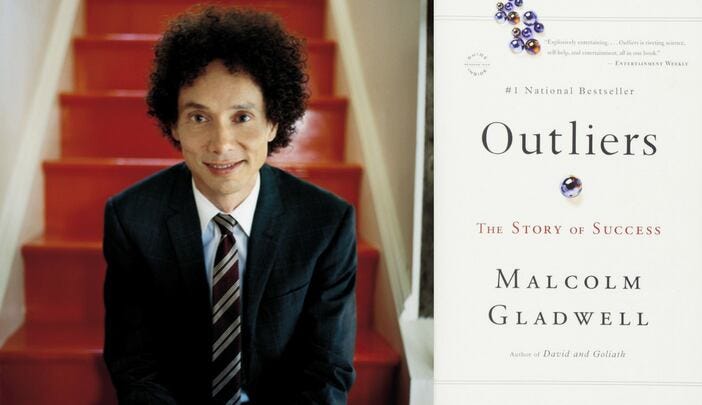Starmer wants to teach children how to speak
The Labour leader wants a new focus by schools on the teaching of oracy, the art of speaking and arguing well in public, and he deserves praise for identifying this
Oracy. It wasn’t a word I’d encountered before, though the meaning was obvious both from its form and its context. It had been coined, of course, in the 1960s, in that breathless, helter-skelter decade in which theory seemed to be an addiction, when it seemed it was time to reframe, rethink and reassess everything, from popular music and theatre to the way in which we taught children the skills which represented the foundation of everything we regarded as learning and culture. 1960 was the year of the Lady Chatterley trial (properly R v Penguin Books Ltd), among whose 35 defence witnesses were some of the revolutionaries: Richard Hoggart, Francis Cammaerts, Walter Allen, James Hemming, Raymond Williams, Stephen Potter, Dilys Powell, Bernardine Bishop. In 1970, the University of East Anglia first offered its master of arts degree in creative writing, established by professor of English literature Angus Wilson and professor of American studies Malcolm Bradbury. It was the first course of its kind in the UK. Between those points the world of education saw the appearance of Michael Halliday’s concept of systemic grammar, structural literary criticism as championed by Roland Barthes and Michel Foucault, and a resurgence of (second-wave) feminist theory with Doris Lessing and Iris Murdoch.
It was Dr Andrew Wilkinson of the School of English at Birmingham University who popularised the term “oracy”. A research project he’d been running gave birth to Spoken English, published in March 1965 with contributions from his colleagues Alan Davies, an Oxford-educated young researcher in applied linguistics, and Dorothy Atkinson, and it coincided with a conference that Easter in Birmingham on the subject. Wilkinson had come to academic life through schoolmastering, and in 1963 had been a founding member of the National Association for the Teaching of English (NATE). He argued that intelligent and fluent speech, forming sentences from words rather than simply reciting existing texts aloud, had been “shamefully neglected”, and was thought not to be important, but he maintained that “the ability to put one word of one’s own next to another of one’s own speech”, which he christened “oracy”, was “a skill which everybody is exercising most of the time” and was therefore “worthy of serious attention”.
Wilkinson wanted oracy to be on a par with literacy and numeracy, hence the formation of the word to nod to both of those skills. Speaking was not absent from the classroom. Children were accustomed to reading aloud, especially reciting poetry, and were often expected to learn verse of a quantity which would unimaginable in modern schools. But this activity, and the awarding of prizes for recitation which was common, was focused mainly on elocution and partly on deeper understanding of the poetry in question, rather than honing communication skills.
However, there was a nascent movement to supplement simple rote learning and recitation with ‘creative’ speech, interrogation and conversation. In 1957, Kenneth Harris, his newspaper’s labour correspondent, founded The Observer Schools’ Mace, a debating competition which continues today (it was taken over by the ESU in 1995). He had been an active debater at Wadham College, Oxford, and, with Edward Boyle and Anthony Wedgwood Benn, had toured the US in 1947 on behalf of the Oxford Union.
In 1963, the minister of education, Sir Edward Boyle, had commissioned the Central Advisory Council for Education (England) to examine the provision of primary education. It proved an exhaustive undertaking, but in January 1967 Children and Their Primary Schools appeared, unofficially but universally known as the Plowden Report after the Council’s chairman, Bridget, Lady Plowden, wife of the industrialist and civil service legend Lord Plowden. In the section on teaching English, it stressed the importance of reading aloud, but principally as a method of improving reading and bringing literature and poetry to life. “Choral verse speaking brought some vitality to the poetry period… children may lose much when they are not set an example of getting poetry by heart.” It also noted with approval the employment of technology: “occasionally a group of children put on tape a programme of poems on a particular theme. They have an incentive for the best reading they can manage, or for getting their poems by heart so that they can speak them better.” It also encouraged teachers to use drama, read aloud and acted out. But these were reading from written texts and meant mainly as learning aids for literacy rather than the development of oral skills of argumentation and presentation.
In 1968, the English-Speaking Union, founded in 1918 to bring Anglophone nations closer together through communication, held its first Public Speaking Competition, the final being held in May at Westminster School. St Edward’s College, Liverpool, was the first victor in a tournament established to encourage the art of public speaking and help young people to express ideas and opinions on current affairs across the world. The competition has developed into a multi-faceted process which encompasses all sorts of public speaking, including debating and performance, which covers the broad range of skills falling under the umbrella of “oracy”.
When Andrew Wilkinson pioneered the idea of oracy in the mid-1960s, he was sceptical of what was then taught. He was relatively dismissive of reading aloud, which he described as a skill “which few people are ever called upon to use”, favouring instead the ability “to create rather than to repeat”, which he pointed out was a facility people exercised almost all the time, often without even thinking about it. He also underlined the way in which pupils learned through the practice of oracy, so that it created a virtuous circle of learning and practice.
Importantly—remembering that this was the mid-1960s—Wilkinson’s concept of oracy was not prescriptive in terms of accent or dialect. It did not elevate received pronunciation (RP) above other patterns of speech as more correct or superior, although many contemporaries did; indeed, RP was often regarded as a “non-accent”, or representing “neutral” speech. But Wilkinson was firm: “if one is to make social judgments [about accents], one must be clear that one is doing so on social and not on scientific grounds”. The traditional mindset against which Wilkinson was reacting had been reinforced by the beginning of sound broadcasting. As Lynda Mugglestone notes in her 2007 Talking Proper, “while instances of Cockney or Yorkshire could be heard upon the airwaves of the National Programme of the early BBC, these were frequently limited top the domains of comedy and light entertainment”. Broadcasters often took elocution lessons to smooth out any regional variations in the timbre and tone, and it was only the accelerated pace of learning and development reliably formed by war which made the first change in this regard: Wilfred Pickles, born in Halifax and speaking with the noticeable if hardly overpowering accent of his county, had begun as a newsreader on the BBC’s North Regional radio service, but after 1941 began to be employed to read bulletins on the nationwide Home Service, the first to do so in any kind of non-RP tones. This was originally decided to make it more difficult for German agents to imitate British broadcasters, but the effect on the listening public was mixed. More than 60 years later, the BBC related:
Wilfred Pickles became a hero for some, but others were outraged: there was no place for regional accents on the BBC! It was even said that some listeners were less inclined to believe the news when Pickles was reading it.
Nevertheless, it is a frequent pattern that doing something for the second time is easier than doing it the first time. It was in some peripheral areas like weather forecasting, sports reporting and leisure pursuits than non-RP accents began to creep in. But entertainment was a huge influence too by the time of Wilkinson’s book: the Beatles has led the Merseybeat explosion of the early 1960s and popularised the Scouse accent of Liverpool and its surrounding population; Sir Michael Caine, although his breakthrough role came as the upper-class Lieutenant Gonville Bromhead in Zulu (1964), was about to unleash with revolutionary effect his working-class south London speech in The IPCRESS File (1965); while Coronation Street, which had first been broadcast in December 1960, brought the rich cadences of Manchester, Salford and the surrounding areas of Lancashire to television screens en masse.
The benefits of oracy have been recognised for decades. Voice 21, an oracy project created by School 21, explicitly identifies oracy as a moral issue. As it notes, “Employers put good oral communication at the top of their requirements for employees. Yet we rarely teach it systematically in schools.” It points out that pupils in deprived areas on average speak no more than four words in any given lesson, whereas the model should be “a classroom rich in talk”. Oracy is even more important for pupils who speak a language other than English at home, as the classroom environment is one of their main opportunities for practicing their spoken English.
In a speech on breaking down barriers to opportunity, delivered in Gillingham on 6 July, Sir Keir Starmer, the leader of the Labour Party, identified oracy as a key aspect of helping young people not only to be able to speak and argue fluently and convincingly, but also of building self-confidence and the ability to surmount challenges. He spoke with unusual passion and conviction on the issue, sounding as if this was something which genuinely drove him.
Confident speaking gives you a steely core, and an inner belief to make your case in any environment. Whether that’s persuading your mum to buy some new trainers, a sceptical public to hear your argument, or even your daughter to let-go of her iPhone. It’s not fool-proof. But we do need to nurture it early, in the early years and in primary school.
To encourage the development of oracy, he announced that every primary school would receive additional funding—he did not specify and amount—to “let them invest in world-class early language interventions, and help our children find their voice”.
It is easy to understand why Starmer puts so much stock in verbal skills. Like any Labour leader, he has to emphasise his humble origins to capture a hint of working-class authenticity. He is certainly not a product of privilege, born in Southwark to a tool-maker (as he never tires of reminding his audiences) and a nurse who suffered from Still’s disease and required more and more care as Starmer grew up. She eventually had to have a leg amputated and by the end of her life was unable to speak or walk. That said, Starmer passed the 11-plus examination and attended Reigate Grammar School, at that time a voluntary-aided selective institution which became independent when he was 14; the fees for his sixth-form studies were paid for by a school bursary. He was a talented musician, and was a junior exhibitioner at the Guildhall School of Music and Drama until he was 18.
He read for his undergraduate law degree at the University of Leeds in the early 1980s. It was one of the great redbrick universities, given its royal charter in 1904 and had a reputation of a friendly atmosphere and a thriving live music scene. Just before Starmer arrived, the vice-chancellor, Lord Boyle of Handsworth—the former Sir Edward Boyle who had participated in that first Oxford Union post-War tour of the US with Kenneth Harris and Anthony Wedgwood Benn, and had as minister of education commissioned the Plowden Report—had died of cancer after 11 years in office. Famous alumni would include Jack Straw, Clare Short, Paul Dacre, Kamal Ahmed, Nichola Witchell, Alan Yentob and Harold Shipman. If his undergraduate studies have an air of grit and hard work, it should be noted that he then earned a Bachelor of Civil Law (BCL) from St Edmund Hall, Oxford.
Starmer, of course, was called to the Bar at Middle Temple in 1987 and specialised in criminal defence cases, especially those involving human rights; he assisted Helen Steel and David Morris in the famous McLibel trial, the longest libel case in British legal history; in 2002, he took silk as a Queen’s Counsel and became joint head of Doughty Street Chambers, founded by the formidable Australian Geoffrey Robertson KC and now home to (among others) Baroness Kennedy of the Shaws KC, Caoilfhionn Gallagher KC, Dr Oliver Lewis, Adam Wagner and Amal Clooney; and in 2008, he was appointed director of public prosecutions and head of the Crown Prosecution Service.
He is, then, a man who has earned his living and his reputation through the spoken as well as the written word. His proficiency has propelled him from a modest childhood to the heart of the professional classes, having held one of the most senior prosecutorial positions in the country and perhaps, of course, the premiership next year, but certainly the leadership of his own party. So his focus on oracy and its benefits is logical and authentic.
(There is a slight irony that, in the House of Commons, he is not noticeably an impressive speaker, bland and robotic, but some barristers are like that; I can easily believe that Starmer is a thorough, methodical and effective advocate or prosecutor, but has no real lightness of touch or wit about him. This means he comes across as stolid and humourless in the chamber. He would probably be an effective minister or spokesman in a committee dealing with a bill, but these are the arenas in which needs to shine.)
One shouldn’t imagine that Starmer has outflanked the educational system or the government by shining a light on the importance of oracy. If anything the field is a crowded one. There is an All-Party Parliamentary Group (APPG) on Oracy, recently revived after a period of hibernation, with Emma Hardy, Labour MP for Kingston-upon-Hull West and Hessle and a former teacher, as chair. One vice-chair is Lord Knight of Weymouth, who was schools minister from 2006 to 2009, while another is Lady Blower, a one-time French teacher who was general secretary of the National Union of Teachers from 2009 to 2016; a third is Labour MP Matt Rodda, previously a ghostwriter for David Blunkett as education secretary and a civil servant in the Department for Education. The APPG produced a report on oracy, Speak for Change, in April 2021 which placed a specific emphasis on oracy as tool for social justice and overcoming socio-economic disadvantage.
The National Literacy Trust, a charity dedicated to improving literacy and under the patronage of HM The Queen, also takes a keen interest in oracy. It frequently holds training sessions and workshops on developing oracy in KS1 and KC2, recognising the importance of early intervention. The CEO since 2007 has been Jonathan Douglas.
The Department for Education’s reading framework, while it does not use the word “oracy”, touches on many of the same issues and outcomes. Ministers have also highlighted the potential value of teaching a range of oracy skills, including debating; in 2016, the schools minister, Nick Gibb, addressed the finalists of the Debating Matters competition. His speech discussed the importance of the skills which debating teaches, but also the way in which it could bring together pupils from a wide range of socio-economic backgrounds and experiences, and related it to the ongoing arguments over freedom of speech and its limits.
Gibb’s background in classroom standards and curriculum is extensive: from 2005 to 2010 he was shadow schools minister, he was appointed minister of state for school standards in 2010, serving till 2012, from 2014 to 2015 he was minister of state for school reform, he resumed his position as school standards minister from 2015 to 2021, and was reappointed to the job after a year on the backbenches in October 2022. He may have been chastened by strong criticism in 2012 when he observed, while agreeing with the importance of talking as a means of learning, that there was a danger it might be “encouraging idle chatter in class”. It is a remark which has dogged him; in 2016, Melissa Benn, a founder of the Local Schools Network, still referred to it when advocating a focus on public speaking in The Guardian.
The point of all of this is that Starmer’s passionate cry in favour of oracy is not radical. (A speech championing a concept first articulated in 1965 could hardly be that.) But that is not necessarily a criticism. Incoming governments cannot, nor should they, seek to be radical in every policy area. But on this issue I think Starmer is right. Oracy skills are clearly important not just in the classroom as an integral tool of paedagogy, but they are the basis for competences like debating which are enormously valuable critical abilities in adult life.
I am also devotedly attached to the idea that oracy in all its forms is something which can be taught, to a very high degree. To concentrate on public speaking and debating for a moment, they are abilities which are often waved aside as innate: you are either good at them or you are not, with those who are being politely applauded (though not too much, if it is something which has come without effort) and those who are not deserving of a reassuring pat on the back and consolatory reassurance that they are not that important anyway. The truth is, as it always turns out to be, more complicated. A 2016 book, Peak: Secrets from the New Science of Expertise, by Anders Ericsson and Robert Pool, delves into reams of scientific data to argue the importance of learning and practice, concluding that natural talent is a small component of excellence. This echoed the theory of Malcolm Gladwell’s Outliers: The Story of Success (2008), famously promoting the “10,000-hour rule” which states that world-level expertise in almost any skill can be developed by practicing for 10,000 hours. Gladwell told a journalist that “the biggest misconception about success is that we do it solely on our smarts, ambition, hustle and hard work”.
However, a review of the Ericsson and Pool work in Scientific American queried not the facts so much as the emphasis placed on them. Its authors, Fredrik Ullén, David Zachary Hambrick and Miriam A. Mosing, pointed to their recent article in Psychological Bulletin in which they proposed that “deliberate practice theory is unable to account for major recent findings relating to expertise and expert performance”, and suggested that there was obviously room for the importance of some kind of innate ability or talent. The Gladwell notion was further undermined in 2022 by Michael Miller.
The conclusion of all of this seems to be what any level-headed person would conclude: that practice and repetition are of course invaluable and integral to becoming extremely able at anything, and it will be a rare individual who can summon up expert-level performance without dutiful study. It is a message that our instincts give us and our experience shows us from an early age. The first time you tie your shoelaces, it will be infinitely more complicated and effortful than when you put your shoes on as an adult in your 40s, say, because you will have performed the task so many times that it is second nature. But that very phrase, “second nature”, is also key: it implies the existence of a “first nature”, a talent or gift which is not taught but is within us or isn’t. My feeling, having debated competitively, having taught debating to schoolchildren and having been a university tutor, is that anyone can become better than average at something if they have willpower and use that willpower to practice extensively. Most people, I think, can become “good” at most things just by repetition, and it is only the gap between “good” and “great” for which innate talent will account.
That perhaps-exhaustive exposition is relevant in this context because it argues that oracy can be taught to a high level, certainly a higher level than is currently attained by most people. There is nothing in theory which prevents schools from producing large cadres of young adults who can speak fell, fluently and convincingly in any kind of public setting. Practice is not simply rote repetition, but scientific opinion seems settled that practice may not make us perfect but certainly moves us in that direction, making further learning easier by changing the way we learn, increasing automaticity, making skills more transferrable and enhancing the plasticity of the brain itself, changing its circuits and making its retrieval more efficient. (A useful summation appeared for the American Psychological Association in 2015.)
You may not regard oracy as a decisive factor in how you will vote at the next election. You would be quite right. It is already taught in schools, and Starmer is merely promising a renewed focus and an expansion of the recognition of its benefits. There are many consequent questions. How will this be taught and integrated into the existing curriculum? Will it require addition resources? (Almost certainly.) How will these resources be provided? Will there be extra funding, and if so, how much, or must this be achieved by a reordering of existing provision? How will it be monitored and assessed? Will the somewhat beleaguered Ofsted be expected to make significant changes to ensure that high standards are maintained? And how will schools address the inevitable equality gap between pupils in high and low socio-economic groups? Will different groups have to be taught in different ways?
These are important but second-order questions. The conclusion I reach is that it is good that Starmer has, presumably because of his profession before politics, shone a spotlight on oracy, and I hope that either the current government is returned and quietly improves its teaching, or, as I must concede currently seems more likely, an incoming Labour government lives up to Starmer’s ideas and puts some weight behind this policy. Critical thinking and the tools and abilities to express oneself clearly and persuasively. The benefits would be felt across the board, and our schools would produce more capable, more self-confident citizens. In a world which sometimes seems more susceptible to incremental gains than big-bang revolutions, this would be one of those gains, and, however it is, I hope it happens.
